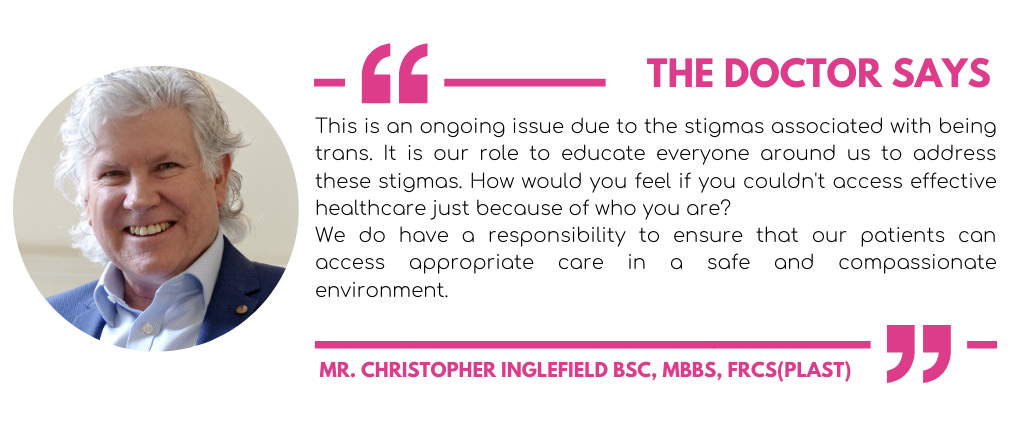Are transgender bodies ignored by modern medicine?

Written by Nicole Scavuzzo
This article published on the BBC on 17th August 2020, explores how gender can, more often than we think, dictate how patients can receive care according to the identity they feel they belong to. Transitioning is a different process for everyone and it’s up to each individual to decide to what extent they want to go in order to feel at home in their own body.
In my case I know that that would mean having my GCS, Gender Reassignment Surgery, to irreversibly change my male biological anatomy to a female one. In conjunction with this, something that is probably much closer ahead in my journey in legally changing my legal name and gender marker. That will give me the right to only refer to myself as female, when filling in forms or when interacting with others. This will allow me to choose if or when I want to disclose the sex I was assigned at birth and it will allow me to be legally recognised as a woman.
Any documentation or records held under my dead name (previous name) will no longer be valid and a new birth certificate will be issued with the updated gender marker and first name. My NHS medical records will be modified and, with that, my routine care as a formerly “male” patient will be immediately switched to the exact same care of any standard biological woman. That means I will be required to attend the same screening appointments as my cisgender sister.
As much as I know that this will finally give me confirmation of the completion of a long and challenging journey, that makes me wonder if anything could be done better. There is no denying that trans healthcare is complex – we live in turbulent times which make things more challenging for anyone who proposes to start a journey to align their body with their felts sense of self. Nonetheless, more than ever, trans folks are becoming more relevant and the numbers of trans people starting their medical transition is arising. I believe it’s time for the NHS and the healthcare worldwide to adapt to these changes.
As much as I want my GP to refer to me as any other woman, I want them to be aware of what my biological reproductive parts are so that they can have a clearer understanding of my clinical case, should I need to seek the help of a family doctor. I don’t want my GP to mention menstruation or pregnancy because, in no way, that would make me feel more validated as a woman. I believe it’s important for the medical sector to have detailed and updated information of a person’s gender as well as their physiology. If that means I would need to tick the “transgender woman” box even after my GCS, I am fine with that. Potentially attending an abdominal aortic aneurysms check-up might, one day, save my life.
Want to have your say or share your experience? Email Nicole at [email protected]!









